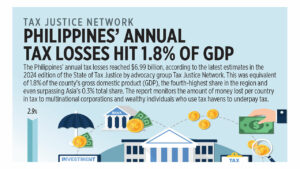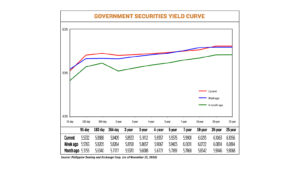Maharlika technical positions last missing piece of org chart

THE Maharlika Investment Corp.’s (MIC) organizational structure has not yet been finalized, the Governance Commission for Government-owned and -controlled corporations (GCG) said. “The interim staffing pattern has been approved by the President with respect to non-highly technical positions, plus their compensation,” GCG Chairman Marius P. Corpus told reporters on the sidelines of an event on Monday.
“What we are trying to finalize now (are) the guidelines for the highly technical positions and their compensation,” he added.
He said President Ferdinand R. Marcos, Jr. ordered the GCG to work with Maharlika to finalize the guidelines.
“If I’m not mistaken, there are now 42 positions, non-highly technical positions that have been approved. We can hire already,” he added.
The guidelines may be finalized early next year, he said, adding, “I’m not saying that’s definite, because the discussions are ongoing. Anything can come up.”
“We have to define first what are highly technical positions. Especially with respect to investments, we need to hire experts to take charge of the various investments.”
He also said the MIC does not need to have a complete staffing to make its first investment.
“They can (invest) right now. There are already negotiations. The president and CEO is there, the board of directors are also there, they can approve the contract or the investment.”
The sovereign wealth fund has yet to make its first official investment since Republic Act No. 11954, which created the Maharlika Investment Fund, was signed into law in 2023.
MIC Chief Executive Officer (CEO) Rafael D. Consing, Jr. has said he expects operations to be in full swing by next year, with “significant” funds committed to its priority investment areas, such as energy.
In July, the MIC obtained membership in the International Forum of Sovereign Wealth Funds. It also completed its investment and risk management framework.
Separately, Mr. Corpus said the GCG is still pushing amendments to its charter.
“We’re supposed to be the regulatory arm for GOCCs and we feel that we need some more incentives for the GOCCs,” he said.
Last year, the GCG floated proposals to strengthen its power to sanction the GOCCs that it oversees.
Republic Act No. 10149, which created the GCG, does not give the commission power to investigate and sanction underperforming GOCCs and their officials.
“All we do is rate them and then on the basis of their rating, if they get a rating of 90% in their performance evaluation scorecard, then they’re entitled to a performance-based bonus.”
“As of now, that’s the only ‘carrot’ we have for them. We need more functions or powers or authority to be able to uplift the GOCC sector, not just the performance rating.”
Mr. Corpus said the GCG has submitted its proposal to the Congress.
“We’ll still pursue it, even if it’s not passed before the 19th Congress adjourns. We can still pursue it (in the next Congress).”
The Department of Finance reported that 52 GOCCs remitted P95.9 billion in dividends as of October, up 51% from a year earlier. — Luisa Maria Jacinta C. Jocson




